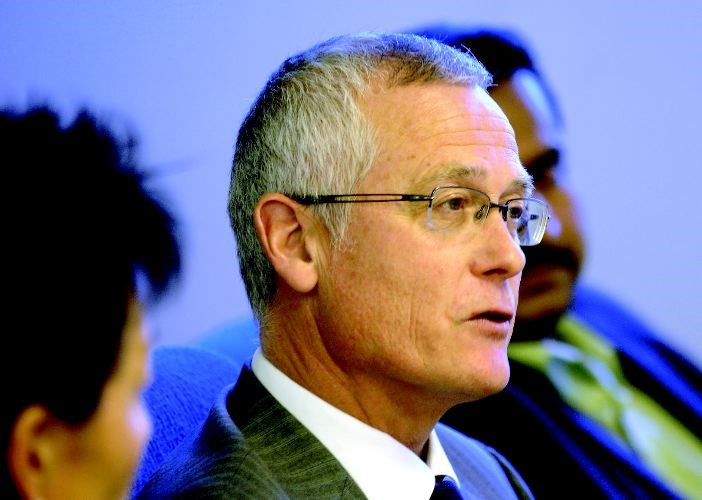The provincial government created the need for foreign coal mine workers by a lack of foresight into training British Columbians, according to the Opposition's mining critic.
B.C. New Democrat Doug Donaldson spoke in Prince George Tuesday about what he calls the B.C. Liberals' failure to address the dearth of homegrown skilled workers to fill jobs going to 200 Chinese workers.
About 200 temporary foreign workers are being brought in to staff the Murray River mine near Tumbler Ridge.
In a weekly email, Minister of Jobs, Tourism and Skills Training Pat Bell said the workers were recruited "because there is a lack of individuals in Canada with the necessary long wall mine training."
But Donaldson said this is not what people had in mind when the Liberals touted their jobs plan.
"I don't think any right-minded person in the province thought that that meant importing workers to take job opportunities away from people in B.C. and especially regionally," Donaldson said.
The Stikine MLA said the government had ample time to set up the necessary training opportunities to get locals up to speed on the necessary skills.
"If we're going to have jobs in our own backyards from exporting the natural resources that are in our own backyards then we need the training in place to make sure local and regional people have the best opportunity to do those jobs," Donaldson said.
According to Bell, the idea that the temporary foreign workers are taking long-term jobs from Canadians is a myth.
"The work being conducted is exploratory and the jobs are temporary," Bell wrote. "This is work required in advance of moving forward with the project and requires individuals trained in underground mining" and is expected to last a six- to eight-month period.
The NDP critic was careful to avoid placing blame with the workers who have been approved through a federal program to work in B.C. or with the company who hired them.
"Where I really see the blame being laid is at the feet of the BC Liberals who've had at least five years on this file - 12 years overall in power - to do something about skills training," Donaldson said. "Specifically in regards to mining where the premier has made it clear that mining is going to be an important part of the future."
According to the Coal Association of Canada, there are 23 operating mines in the country, the majority of which are in the west. Only two underground mines are currently in operation - one in Alberta and one on Vancouver Island - and they both are in need of labourers.
"Canada's had underground mines in the past but we just don't have many of them now," said association spokesperson Michelle Mondeville, adding that those who specialize in underground mining have a different skill set.
"A large percentage of the workforce is over 50," she said. "We're coming upon a perfect storm of a labour situation where you're going to have the people who have a lot of knowledge and skills going to be retiring and there'll be a bit of a gap there for a need for people who are knowledgeable for the industry."
The College of New Caledonia offers a mining industry certificate program - a 15-week course that trains students for entry-level surface mine operations jobs.
"It takes time and also a considerable amount of effort to put these programs into place," said Prince George-Valemount NDP candidate Sherry Ogasawara. She said the lack of consultation between the government and educators is helping to cause a gap in developing the necessary training options.
And while the focus is on underground mines, Prince George-Mackenzie NDP candidate Bobby Deepak said it's indicative of a larger problem. He pointed to the recent Initiatives Prince George trip to Ireland to recruit tradespeople.
"We're importing workers when we have workers here who are ready, able to be skilled and to work," Deepak said, citing a local unemployment rate that sits around 6.9 per cent. "These people could be trained and I think by bringing in workers - nothing against foreign workers - but I think we should be skilling up our provincial workforce first and that's the symptom of the bigger problem."

.png;w=120;h=80;mode=crop)

